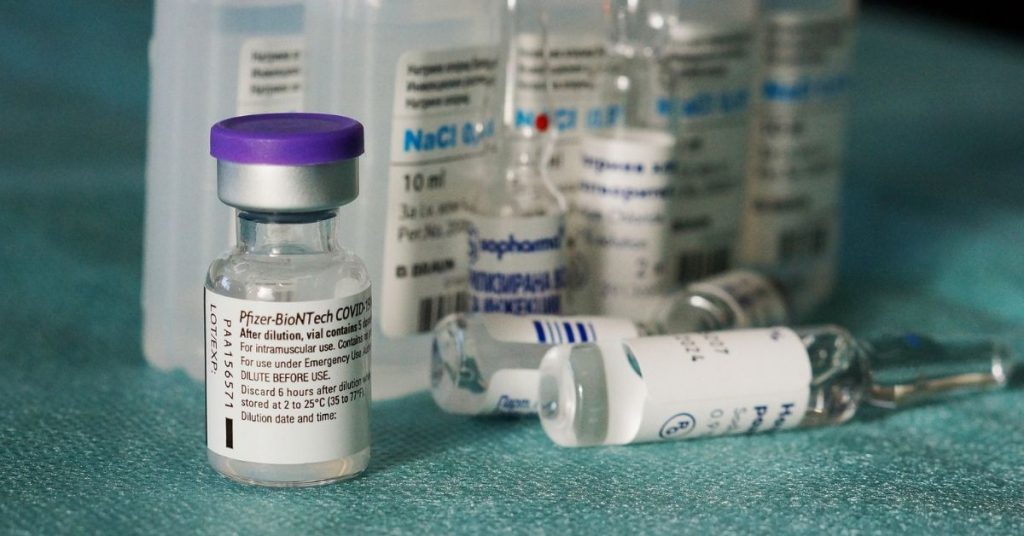Malaysians will be vaccinated with several different brands of COVID-19 vaccines, and the breakdown of the vaccines we’ll get are as follows:
- Pfizer-BioNTech;
- Oxford-AstraZeneca;
- Sinovac;
- CanSinoBIO;
- Russia’s Sputnik V vaccine.
While there are plenty of vaccines to cover most Malaysians, the new virus variants that emerged recently like UK’s COVID-19 variant and the Nigerian COVID-19 variant may pose a concern as to whether or not these vaccines are effective against them.
Doctors around the world are also concerned about the possibility of reinfection among vaccinated people because of these new variants.
According to CNA, health authorities in the UK and other countries have said the E484K mutation (the UK variant) could potentially reduce the effectiveness of vaccines.
For example, CNBC reported that the variant from South Africa reduced Pfizer-BioNTech’s antibody protection by two-thirds according to a February study.
New Variants Are Detected Every Week
According to the BMJ, the SARS-CoV-2 virus makes around one or two mutations a month, a lower number than that of other viruses including influenza.
New variants of the SARS-CoV-2 virus are already being detected every week, however, according to John Hopkin Medicine.
Most just come and go, some persist but don’t become more common, and some increase infection in the population for a while and then fizzle out.
Geographic separation is what tends to result in genetically distinct variants, like how flu viruses change often, which is why doctors recommend that you get a flu vaccine every year.
While we had only those two variants show up recently, it’s best that we still keep an eye out for the other emerging variants which are becoming more common, namely the Brazilian and South African variants.
The good news, though, is that even if these variants tend to spread faster and are more infectious, they do not seem to cause more severe illness or a higher death rate, according to WHO.
What Variants Do These Vaccines Cover?
The UK Variant, B1.1.7
According to Pharmaceutical Technology, while the UK variant, B1.1.7 is 50% more transmissible than the original SARS-CoV-2 strain, it has no significant effect on the Pfizer. Additionally, the Oxford-AstraZeneca reported a 74% efficacy against that variant as well.
The Sinovac is effective against the variant as well, according to Reuters, but more details on exactly how effective the vaccine proved against these strains were not given.
As for the Sputnik V and the CanSinoBIO vaccines, their efficacy against this variant is unknown, and it’s also unclear whether or not any updates will be made to these vaccines, according to a report by the BMJ made on March 2, 2021.
The BMJ also reports that only the Oxford-AstraZeneca and Pfizer have confirmed updates being made to their vaccines to counter these variants, whereas Sinovac hasn’t.
| Vaccine | Efficacy % Against The UK Variant | Any Updates Being Made? |
| Pfizer | Unknown, but reported to be effective against the variant | Yes |
| Oxford-AstraZeneca | 74.6% | Yes |
| Sinovac | Unknown, but reported to be effective against the variant | Unknown |
| CanSinoBIO | Unknown | Unknown |
| Sputnik V | Unknown | Unknown |
The Nigerian Variant, B1.525
Seeing that this variant is relatively new, there is still little info out there on how effective these vaccines we’re receiving will be against the variant. Moreover, it’s still also unclear how it spreads, according to The Guardian.
An important thing to note, though, is that this variant contains the E484K protein spike mutation, which is a big concern as this mutation has been reported to evade the immune system, according to The Star.
According to the BMJ, the E484K is called an escape mutation because it helps the virus slip past the body’s immune defenses.
This mutation is also present in some UK variants, and so far, the current vaccines only work against that variant without the E484K mutation.
The BMJ also found that the new UK variant plus E484K mutation substantially increases the amount of serum antibody needed to prevent infection of cells.
At the very least, Dr Noor Hisham reassured Malaysians that variants with the E484K mutations do not affect the ability to detect or trace a person infected with the variant, however.
In the meantime, we’ll just have to wait for the vaccines to announce any updates being made to tackle the Nigerian variant plus the UK variants with the E484K mutation.
As we’re far from reaching herd immunity, the wait to get vaccinated will come with effort on our end as citizens to continue social distancing, wearing masks at all times, avoid going out when unnecessary, and proper handwashing to prevent these deadly mutations from spreading.
- You can read more COVID-19 vaccine-related articles we’ve written here.
Featured Image Credit: Pixabay










